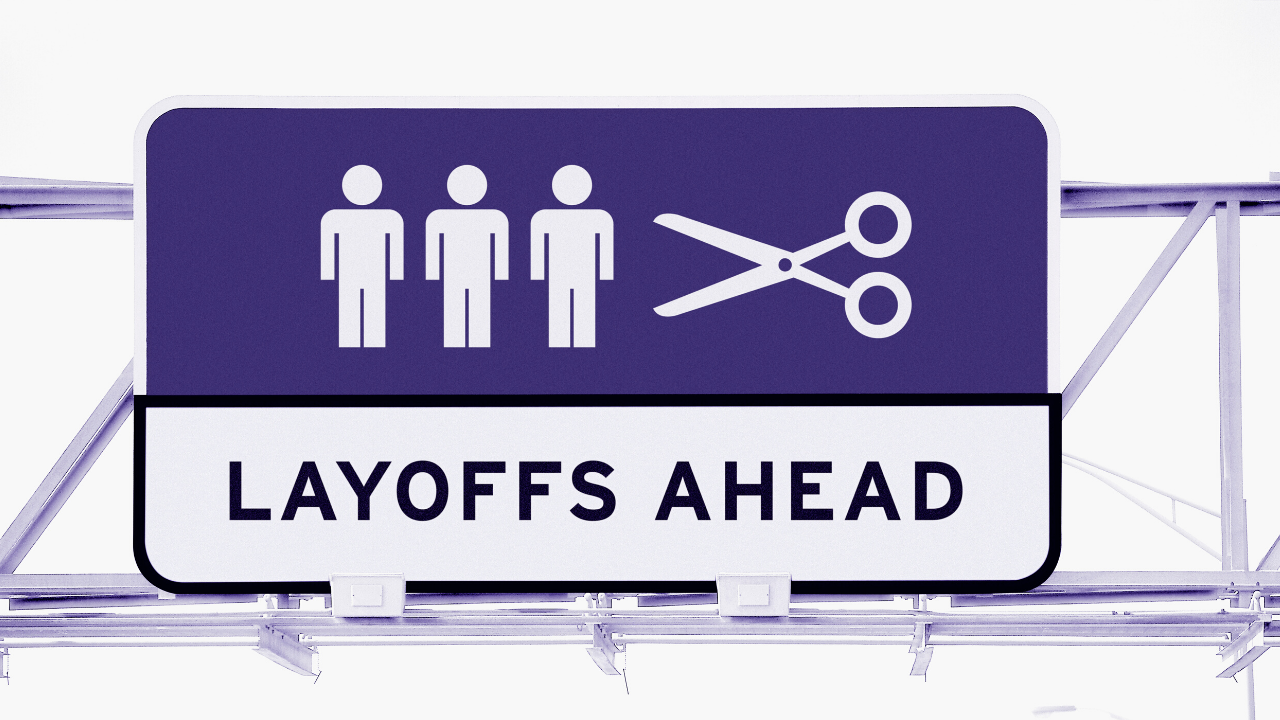Tough Decisions Ahead: Layoff Options

Today, we are looking at extremely tough times for all small businesses. Along with tough times, we will be forced to make some very tough decisions. When it comes to the future of our employees, the future is quite unknown to all of us. One of the most difficult decisions that we will be facing is what to do with employees that we may not be able to keep busy, now and in the future. No matter which way you slice it or dice it, this is a hard call. However, laying off non-essential employees may be the difference between keeping your business or closing your doors.
Did you know that there are different types of layoffs that may provide you with a little more flexibility in how you maneuver these turbulent times? Let’s take a moment to look at the different types of layoffs and what they mean to you as a small business owner:
Work Share Program- The Work-Share Program provides an alternative to laying off employees by allowing them to keep working, but with fewer hours. While an employee is working fewer hours, he or she may be eligible to collect part of his or her regular unemployment benefits. Please note that you must apply and receive approval from the Colorado Division of Labor and Employment (CDLE) to implement this program. Click HERE for more information.
Furlough/ Job Attached Layoff- Job attached means that you are expected to return to your most recent employer after a brief separation of up to 16 weeks. If you are job attached, your requirements to seek work and to register with your local workforce center may be waived, but you must be available to return to work during this time frame.
Permanent Layoff- A permanent layoff is when a position will be permanently eliminated due to organizational hardships, such as; financial difficulties, revenue losses, business restructure/ reorganization, etc. Impacted employees will need to register with local workforce centers and must actively participate in a job search while being available for work.
Unemployment
In all three options above, impacted employees are eligible to apply for unemployment benefits. When they do apply for unemployment, you will receive a notice of filing. You will be required to provide some basic information about the impacted individuals' employment. Answer these questions as accurately as possible. As an employer, you have the right to accept or dispute the claim.
If the claim is approved, it is likely that your unemployment rate will increase due to a layoff. During these difficult times, the cost of increased unemployment rates is much less than the alternative.
Severance?
To pay out severance depends on a few factors; 1: Can you afford it? 2: Is it the right thing to do? 3: How will you calculate the amount? 4: Will it impact laid-off employees' ability to collect unemployment? *Spoiler alert- Yes, it will impact their unemployment.
Paying severance is a personal decision for you and your business. No matter what your decision is, make the decision rational and focused on the best interest of your business. When these decisions are made by emotion, you will experience further hardship.
Last, but not least, if you do choose to pay severance- make sure that you have your attorney draft a severance agreement. A severance agreement is essential and will protect you and your business now and in the future. There are a ton of legal nuances to a severance agreement that you and your attorney must account for.
WARN Act
When considering a layoff, it is important to understand the WARN Act and how it applies to your decision. Here are is a general look at the WARN Act. If you feel that the WARN Act applies to you, please consult your attorney for more details.
- Who does this impact: Employers with 100+ employees, who aggregate at least 4,000 hours per week
- When does this apply: Employers who are planning a plant closing or a mass layoff of 50 or more employees
- What needs to be done: File a WARN Notice with the State of Colorado and provide impacted employees at least 60 days’ notice
The Warn Act has man complexities to it and the above is only a small snapshot of the Act. Please consult an attorney before taking any action.
As a small business owner navigating difficult and unforeseen times, you will be forced to make difficult decisions. Here at HR Branches, we hope any pray that you are not forced with making layoff decisions. But if you are, please know that we are here to help.
Disclaimer: HR Branches provides general information about Human Resources. Please note that the information provided, while reliable, is not legal advice. Please seek legal assistance, or assistance from State, Federal, or International governmental resources, to make sure your legal interpretation and decisions are correct for your location and circumstances. The purpose of this information is for guidance, ideas, and assistance on general HR matters.
Stay connected with news and updates!
Join our mailing list to receive the latest news and updates from our team and a FREE gift! We are HR so privacy is how we roll, your information will not be shared.


